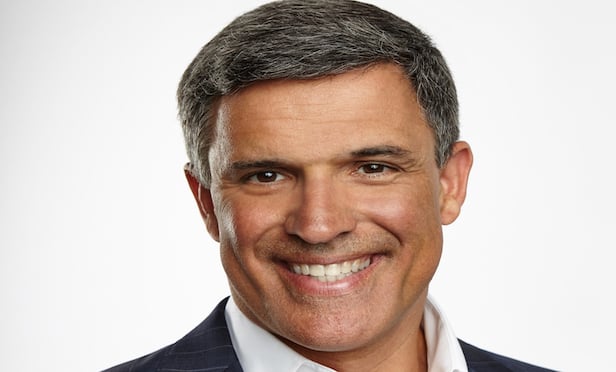 Charles J. Foschini, Berkadia's senior managing director and co-leader for the state of Florida.
Charles J. Foschini, Berkadia's senior managing director and co-leader for the state of Florida.
MIAMI—The Southeast section of the United States dominated multifamily rent growth markets in the first quarter of this year with nine of the top 15 markets located in major urban centers in Florida, Georgia, Alabama, South Carolina and Tennessee, according to a national report released by Berkadia.
The City of Phoenix ranked as the top US multifamily growth market in the Berkadia National Trends Multifamily Report Q1 2019 with 8.9% rent growth. Four markets in the State of Florida ranked among the top 15 in the nation for multifamily rent growth, the most of any state.
The top five US markets after top ranked Phoenix were Reno (8.3% rent growth) and Las Vegas, NV (8.0%), Tucson, AZ (7.7%) and Tampa St. Petersburg, which came in at No. 5 with average year-over-year rent growth of 6.8% and occupancy at 95.3%. Average rent rose in Tampa/St. Petersburg from $1,137 in the first quarter of 2018 to $1,214 in the first quarter of 2019.
“It's no surprise that the Sunshine State had more growth markets than any other state,” said Berkadia's Charles J. Foschini, senior managing director and co-leader for the state of Florida. “The climate—literally and figuratively—is fantastic. Our state government continues to be a pro-job creator and our population continues to grow at a faster clip than almost any other state in the country.”
He continues, “As investors look to place capital, Florida is an easy decision for most institutional groups. The high cost of construction keeps supply in check, and the lack of affordable housing across the state ignites an already strong demand for apartment living.”
The other top Florida markets were: Orlando, which ranked No. 9, with 5.5% year-over-year average rent growth and 96% occupancy this quarter. Average rent rose from $1,170 to $1,234 over the past 12 months.
Jacksonville came in at No. 12 with average year-over-year rent growth of 5.3%, and occupancy at 95%. Average rent rose from $987 to $1,039 over the past year.
South Florida landed at No. 14 on the list, with 5.1% annual rent growth and 95.5% occupancy. Average rent climbed from $1,560 to $1640. South Florida was the second most expensive rental market on the list—only Los Angeles had a higher average rent ($1,889).
Other Southeast markets in the top 15 were: Birmingham, AL, which posted 6.7% rent growth. Its average rent rose from $882 to $941 in the past year for a No. 6 ranking. The City of Atlanta came in at No. 7 with average rent growth of 5.9%. The city's rent rose from $1,145 to $1,213 in the past year. Greenville, SC was next at No. 8 with average rent growth of 5.7%. Greenville's average rent increased from $896 to $947 in the last 12 months.
The City of Nashville ranked No. 13 with average rent growth of 5.2% and saw its rent rise from $1,136 in the first quarter of 2018 to $1,196. Memphis came in at No. 15 with average rent growth of 5.1%. Memphis' rent increased from $802 to $843.
National Trends
Berkadia reported that sustained demand contributed to rising apartment occupancy. The national occupancy rate rose 20 basis points from 2018 to 2019 to $95.3%.
The national effective rent increased 4.1% during the last 12 months to $1,356.
Builders brought 292,924 apartment units online during the last four quarters, down 2.7% from deliveries during the preceding year, as developers continued to scale back construction since inventory growth hit a post-recession peak in 2017.
Berkadia also ranked the top 15 markets in terms of multifamily occupancy. The top five markets were: 1. Los Angeles (South) at 97.1%; 2. Los Angeles (North) at 96.8%; 3. Minneapolis-St. Paul at 96.7%; 4. New York City at 96.7% and San Diego at 96.6%.
Two Southeast markets ranked in the top 15 in terms of occupancy: No. 12 Richmond, VA at 96.1% and 14. Orlando at 96.0%.
© Touchpoint Markets, All Rights Reserved. Request academic re-use from www.copyright.com. All other uses, submit a request to [email protected]. For more inforrmation visit Asset & Logo Licensing.







